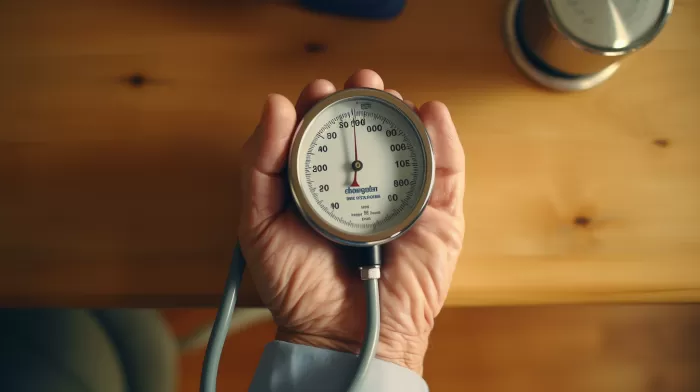High blood pressure, also known as hypertension, isn’t just bad news for your heart; it’s bad news for your brain too. That’s because research has shown a direct connection between increased blood pressure in older adults and a decline in cognitive function. In a study conducted at North Carolina State University, adults aged 60 to 87 were found to experience a noticeable drop in brain power as blood pressure increased. In particular, those with an average systolic blood pressure (the top number) of 130 or higher saw a significant decrease in cognitive function when their blood pressure spiked due to stress. That’s all the more reason to prioritize managing your blood pressure and keeping it at a healthy level.
The dangers of high blood pressure
High blood pressure is a worrying health issue affecting millions of people worldwide, and it’s on the rise. It’s a silent killer, often presenting no apparent symptoms until it’s already caused serious harm to your heart, kidneys, and brain.
One of the critical complications caused by high blood pressure is damage to blood vessels in the brain. Hypertension can cause blood vessels to narrow, rupture, or even leak, leading to reduced blood flow. This in turn can contribute to the development of a range of cognitive issues, such as memory loss, dementia, and even Alzheimer’s disease.
Why stress is a major factor
When your body is under stress, it releases a surge of hormones that temporarily increase your blood pressure. This is a natural response that helps you prepare for a potentially dangerous situation. However, constant stress or repeatedly experiencing stress hormones can damage your blood vessels, raise your blood pressure, and affect your brain function.
As the study highlighted, older adults with a systolic blood pressure higher than 130 experienced a significant drop in cognitive function when their blood pressure increased under stress. This is yet another reason why reducing stress in our lives and finding effective ways to manage it is crucial for maintaining our overall health and well-being.
Tips for managing your blood pressure
The good news is that high blood pressure can often be managed, and in some cases, even reversed. Here are some useful tips you can implement to help keep your blood pressure under control:
- Maintain a healthy weight – Being overweight can raise your blood pressure, so ensure you maintain a healthy weight through proper diet and exercise.
- Stay active – Physical activity is essential for maintaining a healthy blood pressure. Incorporate at least 30 minutes of moderate exercise, such as brisk walking, swimming, or cycling, into your daily routine.
- Eat a balanced diet – A diet rich in fruits, vegetables, whole grains, and lean proteins can help to lower your blood pressure. Limit your intake of processed foods, sodium, and saturated fats. Some specific foods that have been shown to aid in blood pressure control include bananas, spinach, almonds, oats, and low-fat dairy products.
- Cut down on caffeine – Although the relationship between caffeine and blood pressure is still debated, it’s best to enjoy caffeinated beverages in moderation to avoid any possible adverse effects on your blood pressure.
- Limit alcohol consumption – Drinking alcohol in excess can lead to high blood pressure. Stick to the recommended guidelines for alcohol consumption to reduce your risk of hypertension.
- Stop smoking – Smoking can lead to higher blood pressure and damage your blood vessels, further increasing your risk of cognitive decline.
- Manage stress – Adopting stress management techniques such as meditation, deep breathing exercises, and mindfulness can help lower your blood pressure and improve your overall mental and physical health.
- Monitor your blood pressure – Regularly monitoring your blood pressure can help you identify any potential problems early, allowing you to take action before they spiral out of control.
The bottom line
High blood pressure is a serious health concern and can have a profound impact on your cognitive abilities, especially as you get older. It’s essential to make lifestyle changes that can help you maintain a healthy blood pressure and reduce your risk of cognitive decline. By implementing the tips outlined above, you’ll not only improve your heart health but also keep your brain sharp and focused. Because, after all, a healthy brain is just as important as a healthy heart.



